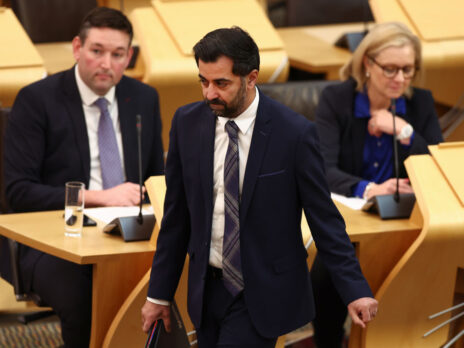
The sacking of Kwasi Kwarteng, and the abject U-turn on corporation tax, has all the elements of farce. But when you consider the economic mess we’re in, and the tangle of institutional responsibility that underpins the drama, it’s not funny.
On the face of it the government’s mini-Budget fiasco is the product of ideology meeting market reality. Liz Truss and Kwarteng worked all summer, out of the earshot of civil servants, on an economic strategy based on free-market fantasy: the state’s too big; high taxes strangle growth; hard Brexit is the route to salvation.
The economic reality is that, since Brexit, Britain has had no coherent economic model. Trade has declined on all measures; the currency had lost nearly a third of its value against the dollar even before Kwarteng’s mini-Budget set it plunging; investment has flatlined; the current account deficit has ballooned to over 8 per cent of GDP.
What sparked bond market turmoil was not simply the act of borrowing tens of billions to give away. Nor was it the sacking of the civil servant who could have stopped it, and sidelining the Office for Budget Responsibility. The underlying problem was the Tories’ cognitive dissonance.
Neither the government nor the Bank of England can talk honestly about the source of Britain’s weak fundamentals, because that would involve acknowledging that Brexit is the source of the problem. Analysts began to treat the sterling like an “emerging market” currency – in which political meddling and ideology get in the way of sound management.
And even as the Bank struggled to save pension funds, it was left facing its worst nightmare: when monetary policy targets and financial stability tasks start to clash – raising questions about the credibility of the institution itself. And that’s why the Bank’s governor Andrew Bailey pulled the plug on government bond-buying, setting the time limit on intervention that forced Truss to sack Kwarteng, promise not to make any spending cuts and reverse cuts to corporation tax.
But it’s not a U-turn. Truss, frozen in the headlights, remains on autopilot, doggedly insisting that her underlying assumption is correct and that only her speed of action and miscommunication caused the turmoil.
I don’t think this government can survive. So two sets of people need to look hard at their own fiscal discipline credentials. Labour, whose growth plans involve borrowing to invest and boosting public services through higher taxation, may be stymied from doing both if it comes to power in a snap election. The SNP meanwhile just had a textbook lesson in what happens when you take dramatic steps on a fiscal wing and a prayer. Like going independent with an economy that cannot pay its way.
There’s a way forward to conditions where fiscal expansion in the name of social and climate justice will be possible. But the first task of anyone given the job of picking up the economic pieces is to restore credibility.
[See also: Liz Truss sacks Kwasi Kwarteng – will she be next to go?]





